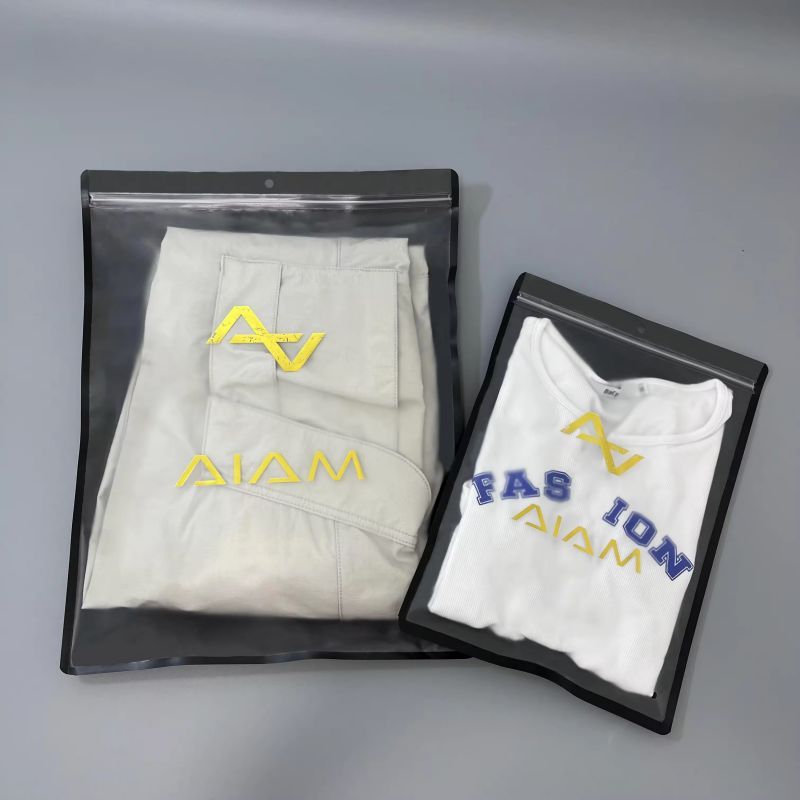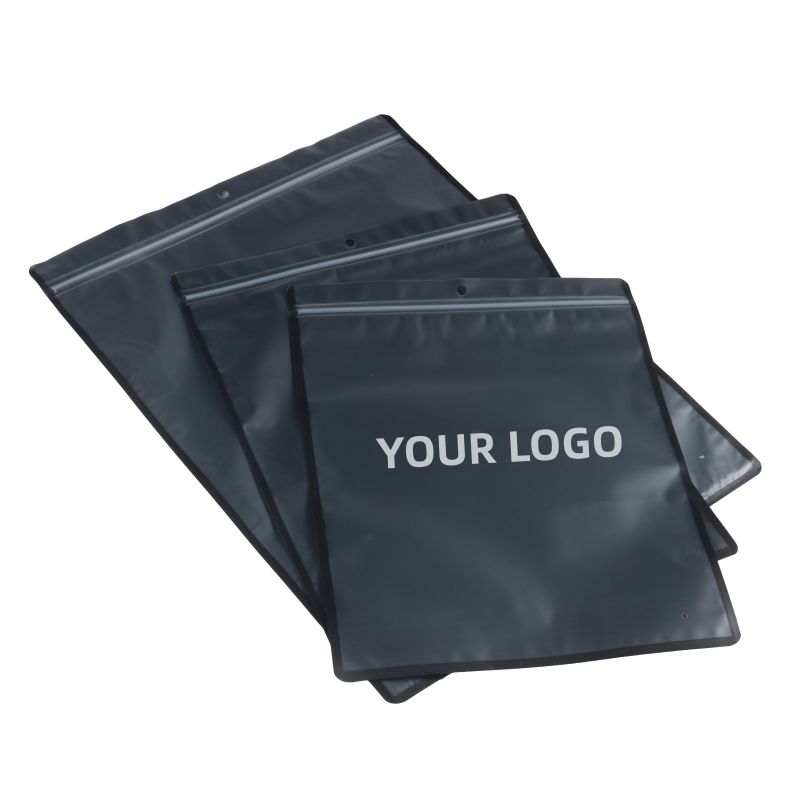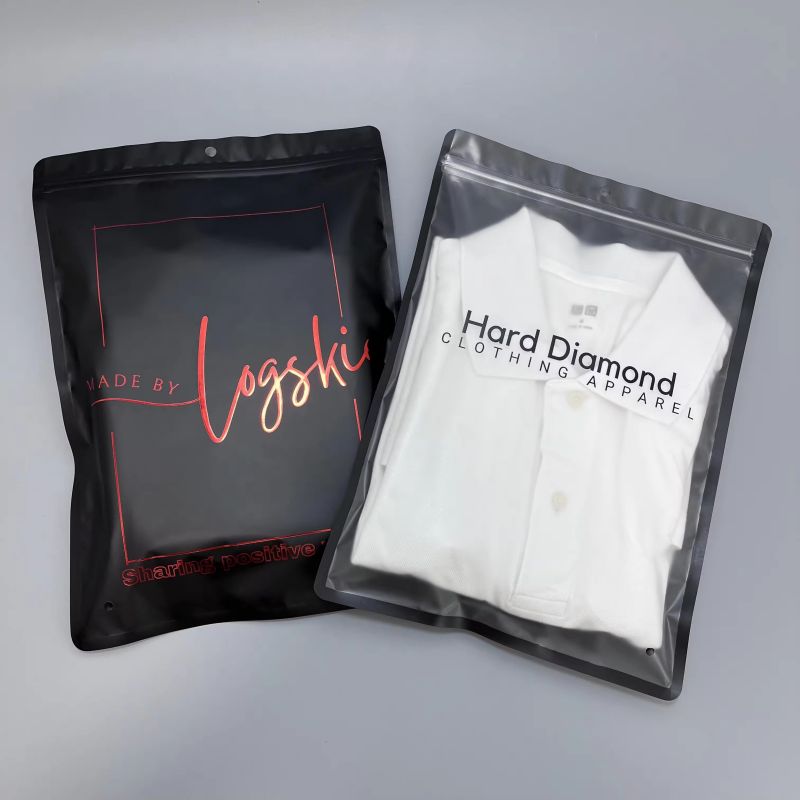Sustainable Packaging Solutions: How Custom Ziplock Bags Reduce Fashion Waste?
As consumers become more environmentally conscious, brands are pressed to rethink not only their production methods but also their packaging solutions. One of the most effective and innovative approaches gaining momentum is the use of custom ziplock bags—a sustainable packaging solution that helps reduce fashion waste significantly.
The Environmental Impact of Fashion Waste
The fashion industry is notoriously one of the largest contributors to global waste and pollution. From textile scraps to excessive plastic packaging, the ecological footprint of fashion is immense. Packaging waste, in particular, plays a critical role as many brands rely on single-use plastics that end up in landfills or oceans. According to recent reports, millions of tons of plastic packaging are discarded annually worldwide, with a significant portion linked to the retail and e-commerce sectors—especially fast fashion. This waste not only damages ecosystems but also contributes to greenhouse gas emissions through inefficient disposal and recycling processes.

Why Sustainable Packaging Matters
Sustainable packaging solutions serve as a pivotal point in the quest to reduce the fashion industry's environmental impact. Switching to eco-friendly materials and reusable packaging aligns with the broader goals of circular economy and waste minimization. Brands that adopt custom ziplock bags demonstrate a commitment to sustainability while enhancing customer experience through practical and attractive packaging. These bags are not only recyclable and reusable but also customizable to reflect brand identity, making them a win-win for companies and the environment alike.
What Are Custom Ziplock Bags?
Custom ziplock bags are resealable plastic bags designed with a zip closure mechanism, which can be tailored in size, material, color, and branding elements. Unlike traditional packaging, which is often single-use, ziplock bags can be reused multiple times, reducing the need for disposable alternatives.
Modern sustainable options include materials such as biodegradable plastics, compostable polymers, and recycled plastics, all engineered to lower environmental impact without sacrificing durability or convenience.

Key Features of Sustainable Custom Ziplock Bags:
Resealability: Prevents product contamination and extends usability.
Durability: Strong enough for repeated use and protection of fashion items.
Custom Branding: Enables logos, slogans, and artwork to promote eco-conscious messaging.
Eco-friendly Materials: Options like compostable, recyclable, or recycled plastics.
Size Versatility: Fits a range of fashion products from accessories to garments.
How Custom Ziplock Bags Help Reduce Fashion Waste
1. Minimize Single-Use Packaging
Traditional plastic bags and wrap are typically discarded immediately after purchase, creating unnecessary waste. Custom ziplock bags, being reusable and durable, encourage customers to keep and reuse the packaging. This shift drastically cuts down the volume of single-use plastic waste generated by fashion retailers.
2. Protect Fashion Items Better
Proper packaging helps protect delicate garments and accessories during shipping and handling. Damaged items often lead to returns, exchanges, or disposal, increasing waste. The sturdy construction and secure seal of ziplock bags reduce product damage, minimizing waste caused by returns and unsellable inventory.
3. Facilitate Efficient Storage and Transport
Ziplock bags are compact and stackable, making storage and transportation more efficient. Efficient logistics reduce carbon emissions associated with shipping by optimizing space and lowering the frequency of transport runs. This indirectly contributes to reducing the fashion industry's carbon footprint.
4. Support Circular Economy Practices
Brands adopting reusable custom ziplock bags can encourage customers to return or reuse packaging, supporting circular business models. Some companies implement take-back programs or offer incentives for returning packaging, fostering sustainable consumption habits and reducing landfill waste.
5. Promote Awareness and Brand Responsibility
Customizing ziplock bags with eco-friendly messages and branding educates consumers about sustainability efforts. This transparency builds trust and loyalty, positioning brands as responsible leaders in sustainable fashion. Increased consumer awareness often translates into more conscious purchasing and disposal behaviors.

Popular Sustainable Materials for Custom Ziplock Bags
Choosing the right material is crucial for maximizing environmental benefits. Some popular sustainable options include:
Biodegradable Plastics: Made from plant-based materials that decompose naturally in a short time.
Compostable Polymers: Certified to break down into non-toxic elements suitable for composting.
Recycled Plastics (rPET): Produced from post-consumer plastic waste, reducing reliance on virgin plastics.
PLA (Polylactic Acid): Derived from corn starch, PLA is compostable and transparent, ideal for showcasing products.
Each material type has pros and cons regarding durability, cost, and environmental impact. Leading fashion brands often collaborate with packaging suppliers to select the most appropriate material based on their product range and sustainability goals.
Customization as a Value-Added Feature
Beyond sustainability, custom ziplock bags offer extensive branding opportunities. High-quality printing of logos, colors, and sustainability certifications reinforces brand identity. For fashion companies, packaging becomes part of the customer experience—adding perceived value and encouraging repeat use.
Incorporating QR codes or URLs on the bags can link customers to the brand’s sustainability initiatives, product care tips, or recycling programs, further engaging consumers and strengthening brand loyalty.
Case Studies: Fashion Brands Embracing Custom Ziplock Bags
Several fashion brands have pioneered the adoption of custom ziplock bags to tackle packaging waste:
EcoWear: This sustainable apparel brand uses compostable custom ziplock bags printed with vegetable-based inks. Customers are encouraged to reuse the bags or return them for recycling, significantly reducing packaging waste.
Urban Chic: A fast-fashion retailer switched to recycled plastic ziplock bags for online orders, cutting single-use plastic packaging by 60% within a year.
GreenThread: This eco-conscious boutique offers reusable custom ziplock bags with elegant designs, which customers use for storing accessories or travel items after purchase.
These examples demonstrate how sustainable packaging innovations can align with business growth while addressing environmental challenges.
Tips for Implementing Custom Ziplock Bags in Your Fashion Brand
Evaluate Packaging Needs: Analyze the type and size of products to determine suitable bag dimensions and material.
Choose Certified Eco-Friendly Materials: Look for certifications like ASTM D6400 (compostability) or FSC (for paper alternatives).
Design for Reusability and Branding: Focus on resealability, durability, and brand messaging.
Partner with Experienced Suppliers: Collaborate with vendors specializing in sustainable custom packaging solutions.
Educate Customers: Use packaging as a tool to inform buyers about reuse, recycling, and sustainability.
Monitor Impact: Track waste reduction and customer feedback to refine packaging strategies over time.
As the fashion industry faces mounting pressure to reduce its environmental footprint, custom ziplock bags offer a practical, sustainable packaging solution that addresses both waste reduction and brand engagement. By minimizing single-use plastics, protecting products better, and supporting circular economy practices, these innovative bags help fashion brands make significant strides toward sustainability. Adopting custom ziplock bags not only benefits the planet but also enhances brand reputation and customer loyalty—essential factors for long-term success in today’s eco-conscious market.
For fashion businesses committed to sustainability, investing in custom ziplock bags is a smart step toward reducing fashion waste and leading the industry toward a greener future.






